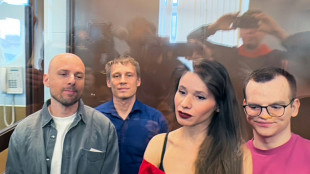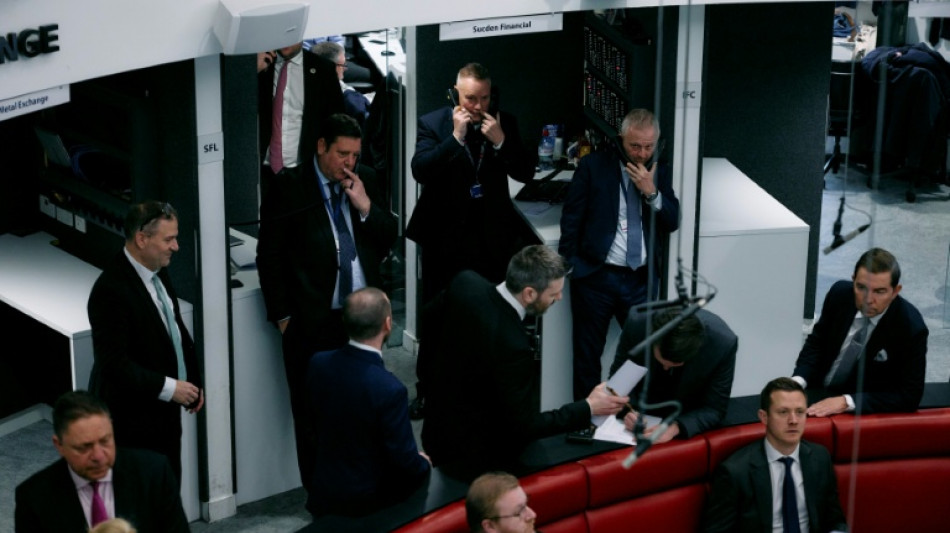
-
 Ruud keeps Barcelona Open defence on course
Ruud keeps Barcelona Open defence on course
-
Trump tariffs could put US Fed in a bind, Powell warns

-
 CONCACAF chief rejects 64-team World Cup plan for 2030
CONCACAF chief rejects 64-team World Cup plan for 2030
-
Putin praises Musk, compares him to Soviet space hero

-
 Son to miss Spurs' Europa League trip to Frankfurt
Son to miss Spurs' Europa League trip to Frankfurt
-
US senator in El Salvador seeking release of wrongly deported migrant

-
 Trump tariffs could put the US Fed in a bind, Powell warns
Trump tariffs could put the US Fed in a bind, Powell warns
-
US judge says 'probable cause' to hold Trump admin in contempt

-
 India opposition slams graft charges against Gandhis
India opposition slams graft charges against Gandhis
-
Nate Bargatze to host Emmys: organizers

-
 US Fed Chair warns of 'tension' between employment, inflation goals
US Fed Chair warns of 'tension' between employment, inflation goals
-
Trump touts trade talks, China calls out tariff 'blackmail'

-
 US judge says 'probable cause' to hold govt in contempt over deportations
US judge says 'probable cause' to hold govt in contempt over deportations
-
US eliminates unit countering foreign disinformation

-
 Germany sees 'worrying' record dry spell in early 2025
Germany sees 'worrying' record dry spell in early 2025
-
Israel says 30 percent of Gaza turned into buffer zone

-
 TikTok tests letting users add informative 'Footnotes'
TikTok tests letting users add informative 'Footnotes'
-
Global uncertainty will 'certainly' hit growth: World Bank president

-
 EU lists seven 'safe' countries of origin, tightening asylum rules
EU lists seven 'safe' countries of origin, tightening asylum rules
-
Chelsea fans must 'trust' the process despite blip, says Maresca

-
 Rebel rival government in Sudan 'not the answer': UK
Rebel rival government in Sudan 'not the answer': UK
-
Prague zoo breeds near-extinct Brazilian mergansers

-
 Macron to meet Rubio, Witkoff amid transatlantic tensions
Macron to meet Rubio, Witkoff amid transatlantic tensions
-
WTO chief says 'very concerned' as tariffs cut into global trade

-
 Sports bodies have 'no excuses' on trans rules after court ruling: campaigners
Sports bodies have 'no excuses' on trans rules after court ruling: campaigners
-
Zverev joins Shelton in Munich ATP quarters

-
 The Trump adviser who wants to rewrite the global financial system
The Trump adviser who wants to rewrite the global financial system
-
US senator travels to El Salvador over wrongly deported migrant

-
 UN watchdog chief says Iran 'not far' from nuclear bomb
UN watchdog chief says Iran 'not far' from nuclear bomb
-
Trump says 'joke' Harvard should be stripped of funds

-
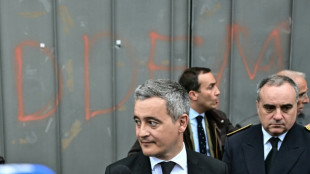 Macron vows punishment for French prison attackers
Macron vows punishment for French prison attackers
-
Canada central bank holds interest rate steady amid tariffs chaos

-
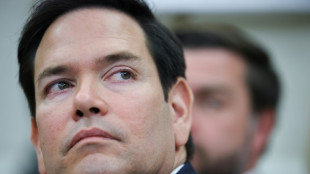 Rubio headed to Paris for Ukraine war talks
Rubio headed to Paris for Ukraine war talks
-
Australian PM vows not to bow to Trump on national interest
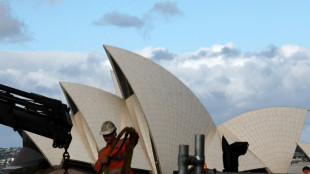
-
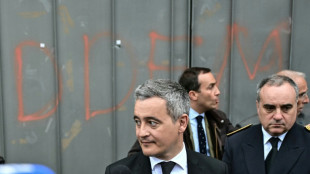 New attacks target France prison guard cars, home
New attacks target France prison guard cars, home
-
Global trade uncertainty could have 'severe negative consequences': WTO chief
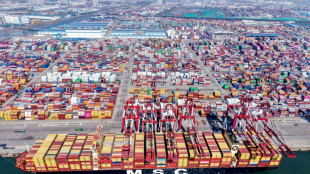
-
 Google facing £5 bn UK lawsuit over ad searches: firms
Google facing £5 bn UK lawsuit over ad searches: firms
-
Onana to return in goal for Man Utd against Lyon: Amorim

-
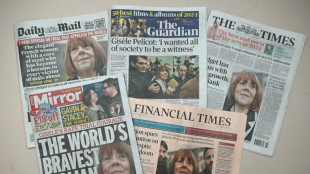 Tiktok bans user behind Gisele Pelicot 'starter kit' meme
Tiktok bans user behind Gisele Pelicot 'starter kit' meme
-
'Put it on': Dutch drive for bike helmets

-
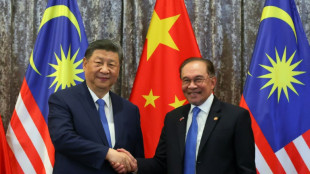 China's Xi meets Malaysian leaders, vows to 'safeguard' Asia allies
China's Xi meets Malaysian leaders, vows to 'safeguard' Asia allies
-
France urges release of jailed Russian journalists who covered Navalny
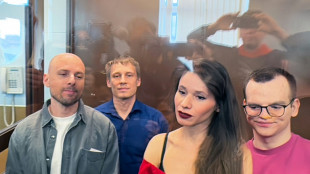
-
 Gabon striker Boupendza dies after 11th floor fall
Gabon striker Boupendza dies after 11th floor fall
-
UK top court rules definition of 'woman' based on sex at birth
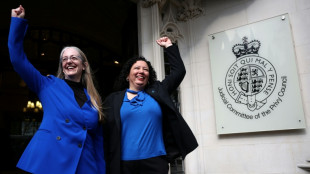
-
 PSG keep Champions League bid alive, despite old ghosts reappearing
PSG keep Champions League bid alive, despite old ghosts reappearing
-
Stocks retreat as US hits Nvidia chip export to China

-
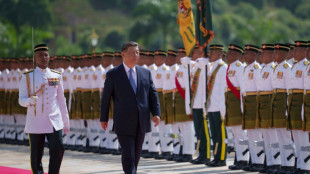 China's Xi meets Malaysian leaders in diplomatic charm offensive
China's Xi meets Malaysian leaders in diplomatic charm offensive
-
Israel says no humanitarian aid will enter Gaza
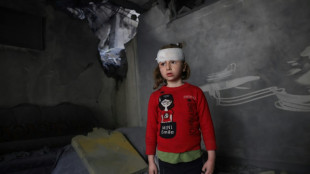
-
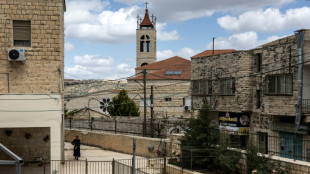 Anxiety clouds Easter for West Bank Christians
Anxiety clouds Easter for West Bank Christians
-
Pocket watch found on Titanic victim to go on sale in UK
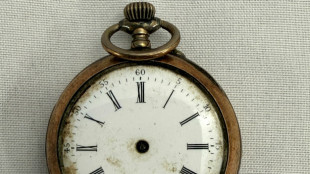

Inside Europe's last 'open-outcry' trading floor
In an era where computer algorithms automate trading at breakneck speeds, a dwindling number of London's metal traders still conduct business in-person by shouting orders across Europe's last so-called open-outcry trading floor.
The near 150-year old tradition takes place in a circle, or pit, of red-leather benches -- called the "Ring" -- where the daily global prices of copper, nickel, aluminium and other metals are set at the London Metal Exchange (LME).
Seconds before the frantic trading begins, a trader rushes in, puts on a tie as per the obligatory dress code, and heads towards one of the booths circling the Ring.
Then, sheets of pencilled figures and stock market orders are handed out.
Once the bell rings, signalling the start of trading, no-one is allowed to trade online or use mobile phones. They can only communicate with the outside world via landline phones.
The five minutes of trading per metal is "a bit like playing poker", said Giles Plumb, a trader at financial services firm StoneX, who has run its copper portfolio for 21 years.
- 'Flurry of activity' -
It starts off calm, with seemingly unbothered traders sitting quietly.
As the minutes tick by, "you try not to look at your watch, to make it look like you don't have an order to place", Plumb told AFP.
But as the final seconds of the allotted time approach, the Ring erupts.
"There's this big flurry of activity," Plumb said, as traders jump up from benches and begin shouting.
They stand up and lean towards the person -- almost exclusively a man -- they're making a deal with, making sure to keep one heel glued to the seat -- another rule of the Ring.
"To be good, you've got to be aware of who's doing what around you, you need to quickly process information and you have to be clear and audible," Plumb said.
"By now, I can tell people's voices and I know who's doing what even without looking at them."
Behind them, brokers speak to clients on landlines, some holding one phone to each ear, repeating orders while taking new ones.
Despite the tumult, Plumb says the sessions are "less aggressive, less competitive" than when he began his career.
At its peak, he explained, the "pit would be full of 22 brokers, 300 people, huge wall of noise. So you could barely hear yourself think".
- 'The battle is lost' -
Now, only eight companies and a few dozen people still participate in these age-old sessions, as online trading killed off most of the world's open-outcry markets.
The London Metal Exchange and its open-outcry tradition began towards the end of the 19th century, pausing only during World War I and again during the Covid-19 pandemic.
The LME wanted to shift entirely to electronic trading in 2021, but faced pressure from its remaining traders to keep the tradition alive.
The exchange compromised by keeping one of its two daily in-person sessions, as long as more than six members are willing to participate.
"Those wanting to trade in the Ring continue to do so, but these days most of the LME's trading takes place electronically," the exchange said in a statement.
There is no longer any reason to continue open-outcry trading, explained Thierry Foucault, professor of finance at HEC Paris business school.
Electronic trading is "technically superior and allows for greater market liquidity, as well as lower intermediation costs", he told AFP.
In some cases it has persisted for good reason, he said, "particularly in highly specialised markets", like metals, where the number of expert operators is very limited.
However, "over time, the battle is lost".
A.Jones--AMWN

